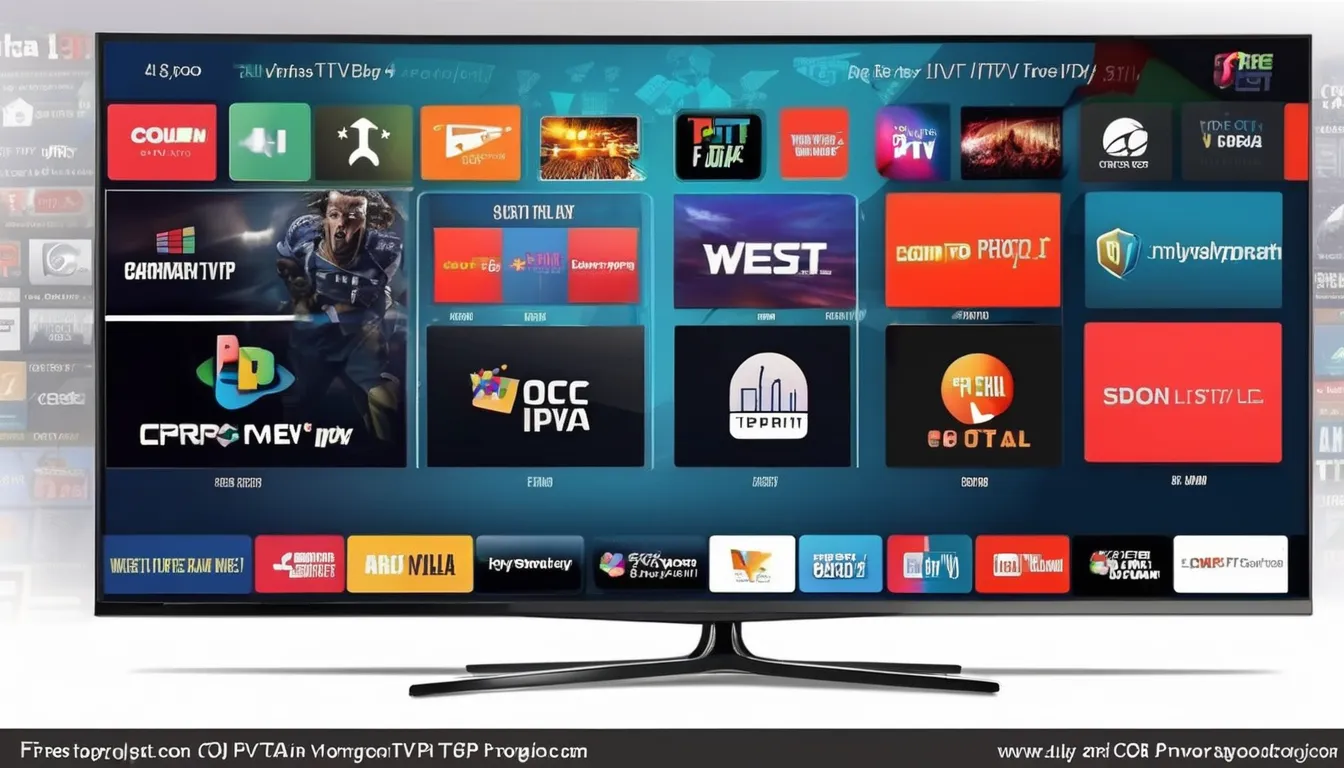If you’re considering IPTV, you’re looking at a modern solution for enjoying a wide range of channels and on-demand content. However, before you commit, it’s vital to evaluate what different providers offer, including channel variety, streaming quality, and device compatibility. While the benefits can be appealing, there are also potential pitfalls that could affect your viewing experience. Understanding these factors will guide you in making the right choice, but what are the specific risks and advantages you’ll need to weigh?
What Is lista iptv ?
In today’s digital age, IPTV, or Internet Protocol Television, is revolutionizing how you consume television content. Unlike traditional cable or satellite TV, IPTV delivers content through your internet connection. This means you can access a vast library of channels and on-demand programming without the need for a bulky satellite dish or cable box.
With IPTV, you’re not restricted to a specific device; you can watch your favorite shows on smart TVs, computers, tablets, or smartphones.
IPTV services typically offer subscription-based models, allowing you to choose packages that fit your viewing preferences. You can enjoy live broadcasts, catch-up TV, and even video-on-demand, all tailored to your schedule. This flexibility empowers you to watch content whenever and wherever you want.
Moreover, IPTV often provides features like pause, rewind, and record options, enhancing your viewing experience. With its ability to deliver high-quality video streams and a wide variety of channels, IPTV has become a popular choice for cord-cutters looking for an alternative to traditional TV services.
How IPTV Works
IPTV operates by using your internet connection to deliver television content directly to your devices. Instead of relying on traditional cable or satellite services, IPTV streams content over the internet, allowing you to watch live TV, on-demand shows, and movies.
When you subscribe, you’ll receive access to a specific IPTV provider’s content library and channels.
To enjoy IPTV, you’ll need a stable internet connection, typically with a minimum speed of 10 Mbps for optimal viewing. You can use various devices, such as smart TVs, computers, smartphones, or dedicated IPTV set-top boxes. Most providers offer apps for easy access to their content.
When you select a channel or program, your device sends a request to the IPTV server, which then processes your request and streams the video content back to you in real-time. This process is often facilitated by a technology called multicast or unicast, depending on how the content is delivered.
IPTV also supports features like time-shifting, allowing you to pause, rewind, or record live broadcasts.
With all these capabilities, IPTV transforms how you consume television, making it more flexible and user-friendly.
Benefits of IPTV
One of the standout advantages of IPTV is its flexibility in content consumption. You can access a wide variety of channels and on-demand content whenever it suits you. This means you’re not tied to a traditional broadcasting schedule, allowing you to watch shows, movies, or sports events at your convenience.
Here are some key benefits you’ll enjoy with IPTV:
- Diverse Content: Access to international channels, niche programs, and exclusive content not available on regular TV.
- High-Quality Streaming: Enjoy HD and even 4K streaming options for a superior viewing experience.
- User-Friendly Interface: Easily navigate through menus and find what you want to watch without hassle.
- Multi-Device Support: Watch your favorite shows on various devices, whether it’s your smart TV, tablet, or smartphone.
Choosing an IPTV Provider
When selecting an IPTV provider, it’s crucial to consider several factors that can significantly impact your viewing experience.
First, check the channel lineup. Ensure the provider offers the channels you want, including local stations, sports, and premium networks.
Next, look at the streaming quality. You’ll want a provider that delivers stable, high-definition streams without buffering issues.
Another important factor is customer support. Reliable support can be a lifesaver when you encounter technical issues. Make sure the provider offers multiple ways to get help, like live chat, email, or phone support.
Additionally, consider the device compatibility. Verify that the service works on your preferred devices, such as smart TVs, tablets, or streaming boxes.
Pricing also plays a big role. Compare packages to find one that fits your budget while still meeting your needs.
Don’t forget to read user reviews. Feedback from current or previous subscribers can give you valuable insights into the provider’s reliability and service quality.
Lastly, check for any trial period or money-back guarantee. This way, you can test the service risk-free before making a long-term commitment.
Potential Drawbacks of IPTV
While there are many benefits to choosing an IPTV provider, it’s important to be aware of some potential drawbacks that can affect your viewing experience. Understanding these challenges can help you make a more informed decision before signing up.
- Internet Dependency: A stable internet connection is crucial for streaming. If your connection drops or lags, your viewing will be interrupted.
- Limited Channel Selection: Some IPTV services may not offer all the channels you want, especially regional or niche ones.
- Legal Issues: Not all IPTV providers operate legally. Subscribing to an unauthorized service could lead to potential legal consequences.
- Variable Quality: The streaming quality can fluctuate depending on your internet speed and the provider’s infrastructure, leading to buffering or lower resolution.
Being aware of these potential drawbacks can help you weigh the pros and cons of IPTV.
By considering these factors, you can choose a service that best fits your needs and ensures a satisfying viewing experience.
Make sure to research thoroughly and read reviews to avoid any pitfalls.
Conclusion
In conclusion, IPTV offers a modern and flexible way to enjoy your favorite shows and channels, but it’s crucial to do your homework before signing up. Take the time to evaluate providers based on channel selection, streaming quality, and device compatibility. Remember to keep potential drawbacks in mind, like internet dependency and legal issues. By making an informed choice, you can enhance your viewing experience and enjoy all that IPTV has to offer.

